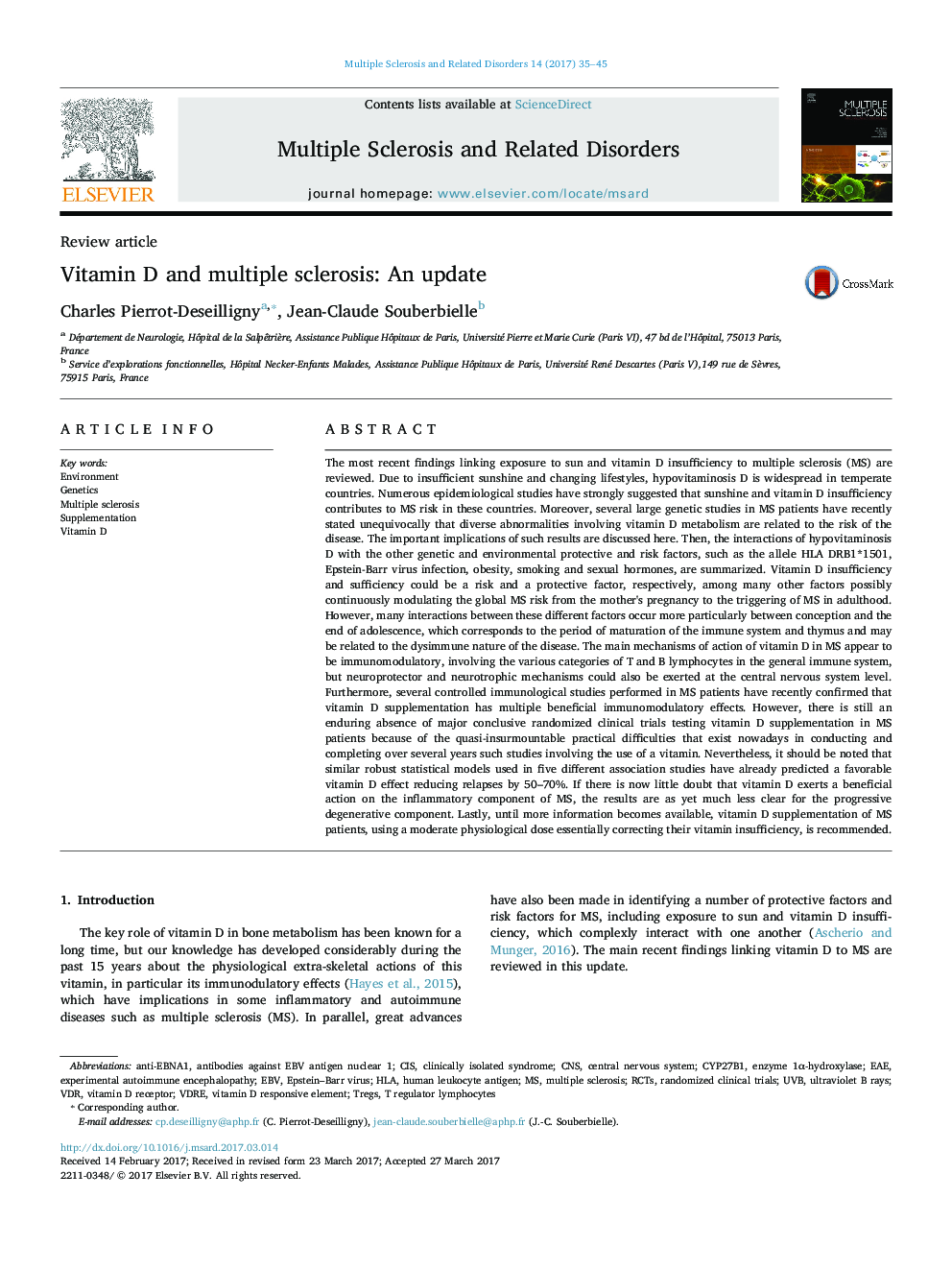| کد مقاله | کد نشریه | سال انتشار | مقاله انگلیسی | نسخه تمام متن |
|---|---|---|---|---|
| 5590726 | 1570203 | 2017 | 11 صفحه PDF | دانلود رایگان |

- Genetics has confirmed that hypovitaminosis D is one of the risk factors for MS.
- A modulation of the global risk for MS may exist from conception to the disease onset.
- The main mechanism of action of vitamin D in MS appears to be immunomodulatory.
- Vitamin D could mainly be active in the inflammatory component of MS.
- Systematic moderate vitamin D supplementation of MS patients is recommended.
The most recent findings linking exposure to sun and vitamin D insufficiency to multiple sclerosis (MS) are reviewed. Due to insufficient sunshine and changing lifestyles, hypovitaminosis D is widespread in temperate countries. Numerous epidemiological studies have strongly suggested that sunshine and vitamin D insufficiency contributes to MS risk in these countries. Moreover, several large genetic studies in MS patients have recently stated unequivocally that diverse abnormalities involving vitamin D metabolism are related to the risk of the disease. The important implications of such results are discussed here. Then, the interactions of hypovitaminosis D with the other genetic and environmental protective and risk factors, such as the allele HLA DRB1*1501, Epstein-Barr virus infection, obesity, smoking and sexual hormones, are summarized. Vitamin D insufficiency and sufficiency could be a risk and a protective factor, respectively, among many other factors possibly continuously modulating the global MS risk from the mother's pregnancy to the triggering of MS in adulthood. However, many interactions between these different factors occur more particularly between conception and the end of adolescence, which corresponds to the period of maturation of the immune system and thymus and may be related to the dysimmune nature of the disease. The main mechanisms of action of vitamin D in MS appear to be immunomodulatory, involving the various categories of T and B lymphocytes in the general immune system, but neuroprotector and neurotrophic mechanisms could also be exerted at the central nervous system level. Furthermore, several controlled immunological studies performed in MS patients have recently confirmed that vitamin D supplementation has multiple beneficial immunomodulatory effects. However, there is still an enduring absence of major conclusive randomized clinical trials testing vitamin D supplementation in MS patients because of the quasi-insurmountable practical difficulties that exist nowadays in conducting and completing over several years such studies involving the use of a vitamin. Nevertheless, it should be noted that similar robust statistical models used in five different association studies have already predicted a favorable vitamin D effect reducing relapses by 50-70%. If there is now little doubt that vitamin D exerts a beneficial action on the inflammatory component of MS, the results are as yet much less clear for the progressive degenerative component. Lastly, until more information becomes available, vitamin D supplementation of MS patients, using a moderate physiological dose essentially correcting their vitamin insufficiency, is recommended.
Journal: Multiple Sclerosis and Related Disorders - Volume 14, May 2017, Pages 35-45